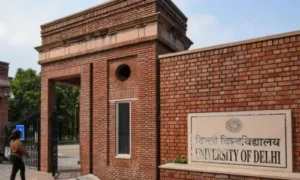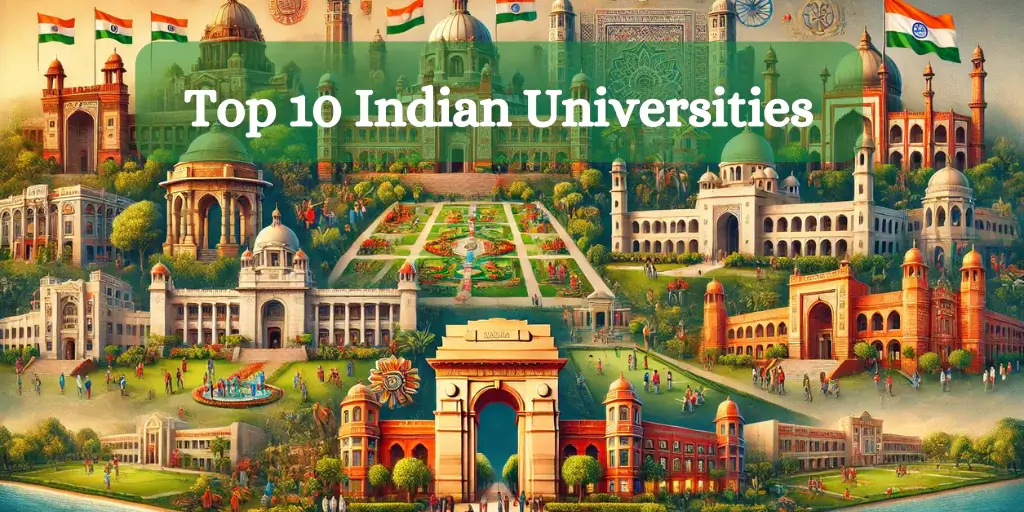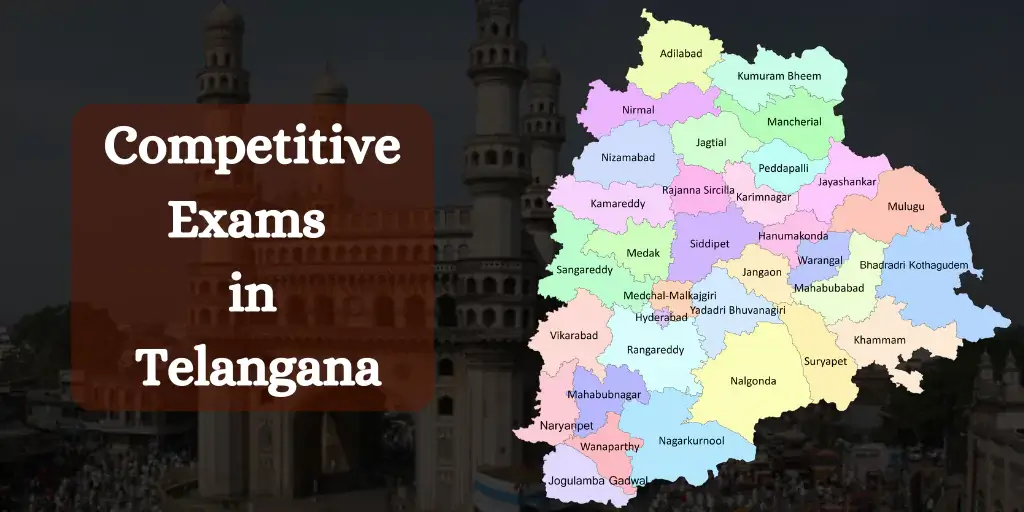Recently updated on January 22nd, 2025 at 05:12 am
India is home to numerous elite universities that are well-known for their contributions to research and academic brilliance. For instance, explore the best universities in India: Tata Institute of Fundamental Research (TIFR), University of Hyderabad, Indian Institute of Science (IISc), Indian Institutes of Technology (IITs), Jawaharlal Nehru University (JNU), University of Delhi, Indian Institutes of Management (IIMs), Anna University, Indian Statistical Institute (ISI), Indian Institute of Technology (IIT BHU), and University of Hyderabad. In particular, these universities are leaders in various sectors, influencing higher education in India and advancing innovation and knowledge worldwide.
1. Indian Institute of Science (IISc), Bangalore

The Indian Institute of Science (IISc), based in Bangalore, India, is a leading institution for scientific research and teaching in India.
History and Establishment: In 1909, Jamsetji Nusserwanji Tata, a pioneer of Indian industry, founded IISc with the help of the Maharaja of Mysore, Krishnaraja Wodeyar IV, and the Government of India. It was envisioned as an organization that would help to advance scientific research and education in India.
Academic Programs: IISc provides undergraduate, postgraduate, and doctoral degrees in engineering, science, management, and design. The institute is well-known for its research output and provides several multidisciplinary research possibilities.
Departments and Centers: IISc offers various departments and multidisciplinary research centres that specialize in various topics, including aerospace engineering, biotechnology, computer science, electrical engineering, materials science, and others. These departments and centres promote advanced research and innovation.
Collaborations: The IISc actively collaborates with top academic institutions, research organizations, and enterprises around the world to promote knowledge exchange, research collaborations, and joint initiatives.
Alumni: IISc has a prominent alumni network that includes leaders in academia, industry, government, and various other fields, both in India and internationally. Many alumni have made important contributions in their respective disciplines.
2. Indian Institutes of Technology (IITs) Mumbai

The Indian Institute of Technology Bombay (IIT Bombay) is one of the premier technical institutes in India.
Establishment and History: IIT Bombay was founded in 1958 with Soviet Union backing to help India’s technological progress. It is the second-oldest IIT in India, following IIT Kharagpur.
Academic Programs: IIT Bombay provides a diverse range of undergraduate, postgraduate, and doctorate programs in engineering, technology, science, management, and humanities. The undergraduate curriculum culminates in a Bachelor of Technology (B.Tech.) degree, while postgraduate programs include Master of Technology (M.Tech.), Master of Science (M.Sc.), Master of Design (M.Des.), Master of Management (M.Mgmt.), and others.
Infrastructure: IIT Bombay has world-class infrastructure and facilities to support its academic and research programs. This comprises well-equipped labs, libraries, computing facilities, experimental areas, and student amenities.
Entrance Exam (JEE): Admission to undergraduate programs at IIT Bombay is extremely competitive and is dependent on the Joint Entrance Examination (JEE) Advanced, which is administered by the IITs. Only a small proportion of the top JEE Advanced scorers gain admission to IIT Bombay.
Alumni: IIT Bombay boasts a prominent alumni network that includes leaders in academia, industry, government, and various other fields, both in India and overseas. Many alumni have made important contributions to their disciplines and are widely known for their accomplishments.
3. Indian Institute of Technology (Banaras Hindu University), Varanasi (IIT BHU)

The Indian Institute of Technology (Banaras Hindu University), Varanasi, also known as IIT BHU, is a leading technical institute in India.
Establishment and History: IIT BHU was founded in 1919 as the Banaras Engineering College, which eventually evolved into the Institute of Technology, Banaras Hindu University (IT-BHU). After IT-BHU was merged into the IIT system, it was officially classified as an Indian Institute of Technology (IIT) in 2012.
Academic Programs: IIT BHU provides a diverse range of undergraduate, postgraduate, and doctorate programs in engineering, technology, science, and management. The undergraduate program leads to a Bachelor of Technology (B.Tech.) degree, while the postgraduate degrees include Master of Technology (M.Tech.), Master of Science (M.Sc.), and Master of Business Administration (MBA), among others.
Entrance Exam (JEE): Admission to undergraduate programs at IIT BHU is highly competitive and depends on the Joint Entrance Examination (JEE) Advanced administered by the IITs. Only a small percentage of the top JEE Advanced scorers gain admission to IIT BHU.
Student Life: IIT BHU has a busy and energetic campus life, with several student clubs, cultural events, technical festivals, and sporting activities. The institute promotes recreational and co-curricular activities to help its students develop holistically.
Alumni: IIT BHU has a prominent alumni network that includes leaders in academia, industry, government, and various other fields, both in India and overseas. Many alumni have made important contributions to their disciplines and are widely known for their accomplishments.
4. Jawaharlal Nehru University (JNU), New Delhi

Jawaharlal Nehru Institution (JNU), based in New Delhi, India, is a well-known public institution known for its academic brilliance and active intellectual environment.
Establishment and History: JNU was founded in 1969 by an act of Parliament to advance higher education and research in a wide range of disciplines. It was named after Jawaharlal Nehru, India’s first Prime Minister, who played a key role in establishing modern India.
Academic Structure: JNU provides a diverse range of undergraduate, postgraduate, and doctorate academic programs. The university is divided into schools and centres, each focusing on a certain discipline, such as social sciences, languages, sciences, arts and aesthetics, law, and management.
Research and Innovation: Research is important to JNU’s academic character. The university offers various research centres and laboratories that focus on various issues, including social sciences, humanities, natural sciences, and technology. JNU faculty and students often publish their research findings in well-known national and international publications.
Entrance Exams: Admission to JNU’s undergraduate, postgraduate, and doctorate programs is highly difficult, with entrance exams administered by the institution. These entrance tests test students’ ability and subject knowledge in their chosen fields of study.
Alumni: JNU has a remarkable alumni network that includes prominent leaders, researchers, activists, and professionals who have made important contributions to their professions in India and internationally. Many JNU alumni have prominent positions in academia, government, media, and civil society organizations.
5. University of Delhi

The University of Delhi, also known as DU, is a leading central university in India.
Establishment and History: The institution of Delhi was founded in 1922 as a unitary, teaching, and residential institution through an act of the then-Central Legislative Assembly. It began with only three colleges and a few hundred students. Over time, it has developed to become one of India’s largest institutions.
Academic Structure: The University of Delhi provides undergraduate, postgraduate, and doctoral programs in a variety of fields, including arts, commerce, sciences, social sciences, humanities, languages, engineering, law, and management. The university is divided into faculties, departments, centres, and colleges, each specializing in a distinct area of study.
Entrance Exams: Admission to undergraduate programs at the University of Delhi is highly difficult, with admission exams administered by the university. These entrance tests test students’ ability and subject knowledge in their chosen fields of study.
Student Life: The University of Delhi has a busy and energetic campus life, with numerous student organizations, groups, cultural events, sports, and festivals. The university encourages extracurricular and co-curricular activities to help its students develop holistically.
Alumni: The University of Delhi boasts a notable alumni network that includes prominent leaders, researchers, professionals, artists, and activists who have made important contributions to their professions both in India and internationally. Many DU alumni have prominent positions in academia, government, journalism, and other businesses.
6. Indian Institute of Management (IIMs) Ahmedabad

The Indian Institute of Management Ahmedabad (IIM Ahmedabad) is a leading business school in India and is internationally recognized for its management education and research.
Establishment and History: IIM Ahmedabad was founded in 1961 as the second Indian Institute of Management after IIM Calcutta. It was founded with the cooperation of the Government of India, the Government of Gujarat, and prominent businesspeople to deliver world-class management education in India.
Academic Programs: IIM Ahmedabad provides a variety of academic programs, including the flagship Post Graduate Programme in Management (PGP), Fellow Programme in Management (FPM), Post Graduate Programme in Food and Agri-Business Management (PGP-FABM), Executive Education Programs, and short-term management development programs.
Admission Process: The flagship PGP program at IIM Ahmedabad is highly competitive, with admission based on the Common Admission Test (CAT), group discussions, and personal interviews. During the selection process, the institute examines the candidates’ academic and professional achievements, diversity, and job experience.
Student Life: IIM Ahmedabad’s campus life is active and energetic, with multiple student groups, committees, cultural events, guest lectures, seminars, and industrial linkages. The institute promotes recreational and co-curricular activities to help its students develop holistically.
Alumni Network: IIM Ahmedabad boasts a prominent alumni network that includes leaders in academia, industry, government, and a variety of other fields both in India and overseas. Many IIM Ahmedabad alumni have made important contributions in their respective disciplines and are recognized globally for their achievements.
7. University of Hyderabad

The institution of Hyderabad (UoH), commonly known as Hyderabad Central University, is a major public research institution in Hyderabad, Telangana, India.
History and Establishment: The University of Hyderabad was established as a central university by an act of Parliament in 1974. It was formed to advance higher education and research in a variety of fields.
Academic Structure: The University of Hyderabad offers a diverse range of undergraduate, graduate, and doctorate degrees. The university is divided into schools and departments, each of which focuses on a distinct area of study, such as sciences, humanities, social sciences, engineering, management, and performing arts.
Entrance Exams: Admission to undergraduate, postgraduate, and doctorate programs at the University of Hyderabad is very competitive and is determined by admission examinations administered by the university. These entrance tests test students’ ability and subject knowledge in their chosen fields of study.
Student Life: The University of Hyderabad has a busy and energetic campus life that includes several student organizations, societies, cultural events, sporting activities, and festivals. The university encourages extracurricular and co-curricular activities to help its students develop holistically.
Alumni: The University of Hyderabad boasts a notable alumni network that includes prominent leaders, scholars, professionals, artists, and activists who have made important contributions to their professions in India and internationally. Many University of Hawaii alumni have significant positions in academia, government, journalism, and various industries.
8. Tata Institute of Fundamental Research (TIFR), Mumbai

The Tata Institute of Fundamental Research (TIFR) is one of India’s leading research institutions, focusing on fundamental research in a variety of scientific disciplines.
Establishment and History: Dr Homi J. Bhabha, a visionary physicist, created TIFR in 1945 with the help of the Tata Group and the Indian government. It was founded to encourage advanced research and training in the basic sciences.
Research Areas: TIFR undertakes research in a variety of disciplines, including physics, mathematics, chemistry, biology, computer science, and multidisciplinary fields such as astrophysics, condensed matter physics, nuclear physics, molecular biology, genomics, and neuroscience.
Research Facilities: TIFR provides cutting-edge research facilities and infrastructure to assist its scientific efforts. This encompasses laboratories, computing facilities, libraries, experimental facilities, and advanced instrumentation facilities.
Academic Programs: TIFR provides a variety of academic programs, including integrated M.Sc.-Ph.D., Ph.D., and postdoctoral programs in many areas. The institute also organizes summer programs, workshops, and conferences to encourage scientific exchange and collaboration.
Alumni: TIFR has a prestigious alumni network that includes well-known scientists, researchers, academicians, and industrial leaders who have made major contributions to their disciplines both in India and beyond. Many TIFR alumni have high-ranking positions in academia, research institutions, and companies worldwide.
9. Anna University, Chennai

Anna University, based in Chennai, Tamil Nadu, is one of India’s largest and most renowned technological institutes.
Establishment and History: Anna University was founded on September 4, 1978, after the amalgamation of numerous technical colleges in the state of Tamil Nadu. It was named after C.N. Annadurai, the previous Chief Minister of Tamil Nadu, and is classified as a state technical university.
Academic Structure: Anna University provides a diverse range of undergraduate, postgraduate, and doctoral programs in engineering, technology, architecture, management, and applied sciences. The institution is divided into colleges, departments, and centres, each specialized in a certain field of study.
Entrance Exams: Admission to undergraduate and postgraduate programs at Anna University is based on university-conducted or national-level entrance exams such as the Tamil Nadu Engineering Admissions (TNEA), Tamil Nadu Common Entrance Test (TANCET), and Graduate Aptitude Test in Engineering.
Student Life: Anna University’s campus life is active and dynamic, with a variety of student organizations, groups, cultural events, sports, and festivals. The university encourages extracurricular and co-curricular activities to help its students develop holistically.
Alumni: Anna University has a prominent alumni network that includes leaders in academia, industry, government, and a variety of other fields both in India and overseas. Many Anna University alumni have made important contributions to their disciplines and are internationally renowned for their accomplishments.
10. Indian Statistical Institute (ISI), Kolkata

The Indian Statistical Institute (ISI), based in Kolkata, West Bengal, is a globally recognized organization that conducts research, teaches, and applies statistics, mathematics, and related sciences.
Establishment and History: ISI was founded in 1931 in Kolkata by famous statistician Professor Prasanta Chandra Mahalanobis, to advance research and instruction in statistics and allied subjects. In 1959, Parliament passed legislation designating it as a national institute.
Academic Programs: ISI provides undergraduate, graduate, and doctorate programs in statistics, mathematics, computer science, and quantitative economics. The institute is especially recognized for its Master of Statistics (M.Stat.) and Master of Mathematics (M.Math.) programs, which are highly sought after by students seeking jobs in academia and industry.
Entrance Exams: Admission to ISI’s academic programs is extremely demanding and is based on entrance exams administered by the institute. These admission tests assess students’ aptitude and knowledge of statistics, mathematics, and computer science.
Infrastructure: ISI provides cutting-edge infrastructure and research facilities to support its academic and research programs. This comprises well-equipped laboratories, computing facilities, libraries, lecture rooms, and student accommodations.
Alumni: ISI has a prominent alumni network that includes leaders in academia, industry, government, and various other fields, both in India and overseas. Many ISI graduates have made important contributions to their respective disciplines and are internationally renowned for their achievements.
Conclusion
In conclusion, India is home to a wide variety of prestigious universities that specialize in everything from science and engineering to business and social sciences. Furthermore, organizations that have made significant national and worldwide contributions to research and education include Jawaharlal Nehru University, the Indian Institute of Science, and the Indian Institutes of Technology. Additionally, India’s academic landscape is further enhanced by institutions like the Tata Institute of Fundamental Research, the University of Hyderabad, and the University of Delhi. Although these rankings offer a glimpse of greatness, each school is vital to determining how innovation and education will develop in India in the future.







binance signup bonus
September 4, 2024Thanks for sharing. I read many of your blog posts, cool, your blog is very good.
Georgegus
September 4, 2024Оптовый источник купить рекламные аккаунты FB открывает возможность заказать аккаунты для работы с трафиком. Когда вы планируете купить аккаунты Facebook, чаще всего важен не «одном логине», а в проходимости чеков: отсутствие вылетов на селфи, наличие пройденного ЗРД в Ads Manager и прогретые FanPage. Мы оформили короткую карту выбора, чтобы вы без лишних вопросов понимали какой лимит выбрать до оплаты.Навигация по теме: типы аккаунтов (Мамки, Автореги, Логи). Ключевая идея: покупка — это только вход. Дальше решает схема залива: как вяжется карта, как вы передаете лички аккуратно, как реагируете на полиси и как масштабируете адсеты. Особенность этого шопа — заключается в наличие огромной базы знаний по FB, в которой написаны актуальные мануалы по запуску рекламы. Тут вы найдете акки Facebook под разные задачи: от миксов до трастовыми БМами с высоким лимитом. Заходите в сообщество, изучайте полезные разборы банов, стройте систему и в итоге масштабируйтесь с помощью нашего сервиса прямо сейчас. Дисклеймер: используйте активы законно и всегда с учетом правил Meta.
Rubinquape
September 4, 2024химчистка обуви отзывы химчистка обуви
Michealtem
September 4, 2024интерактивный проектор магазин проекторов в Москве
up x 50
September 4, 2024Любишь азарт? up x казино играть онлайн в популярные игры и режимы. Быстрый вход, удобная регистрация, стабильная работа платформы, понятный интерфейс и комфортные условия для игры в любое время на компьютере и мобильных устройствах.
up-x 10
September 4, 2024Любишь азарт? up x официальный сайт играть онлайн легко и удобно. Быстрый доступ к аккаунту, понятная навигация, корректная работа на любых устройствах и комфортный формат для пользователей.
electric-top 66
September 4, 2024Электромонтажные работы https://electric-top.ru в Москве и области. Круглосуточный выезд электриков. Гарантия на работу. Аварийный электрик.
antishum-spb 49
September 4, 2024коррозия у авто? Авто Тех Центр «Защита» эффективная защита от влаги, соли и реагентов. Комплексная обработка кузова и днища, качественные составы и надёжный результат для новых и подержанных авто.
antikor-service-33
September 4, 2024Коррозия на авто? антикоррозийная обработка цена мы используем передовые шведские материалы Mercasol и Noxudol для качественной защиты днища и скрытых полостей кузова. На все работы предоставляется гарантия сроком 8 лет, а цены остаются доступными благодаря прямым поставкам материалов от производителя.
ai-event-35
September 4, 2024Планируете мероприятие? ai-event уникальные интерактивные форматы с нейросетями для бизнеса. Мы разрабатываем корпоративные мероприятия под ключ — будь то тимбилдинги, обучающие мастер?классы или иные активности с ИИ, — с учётом ваших целей. Работаем в Москве, Санкт?Петербурге и регионах. AI?Event специализируется на организации корпоративных мероприятий с применением технологий искусственного интеллекта.
bastion 18
September 4, 2024Противопожарные двери https://bastion52.ru купить для защиты помещений от огня и дыма. Большой выбор моделей, классы огнестойкости EI30, EI60, EI90, качественная фурнитура и соответствие действующим стандартам.
buy-flowers
September 4, 2024Нужны цветы? ромашки с доставкой закажите цветы с доставкой на дом или в офис. Большой выбор букетов, свежие цветы, стильное оформление и точная доставка. Подойдёт для праздников, сюрпризов и важных событий.
kometa casino 60
September 4, 2024Любишь азарт? комета казино на деньги современные слоты, live-форматы, понятные правила и удобный доступ с ПК и смартфонов. Играйте онлайн в удобное время.
JamesSnuri
September 4, 2024Играешь в казино? апх Слоты, рулетка, покер и live-дилеры, простой интерфейс, стабильная работа сайта и возможность играть онлайн без сложных настроек.
JamesSnuri
September 4, 2024Играешь в казино? ап икс казино Слоты, рулетка, покер и live-дилеры, простой интерфейс, стабильная работа сайта и возможность играть онлайн без сложных настроек.
RusselOccaB
September 4, 2024Explore the thrill Download Aiko and the Wind Spirit of online casinos where players can enjoy a vast array of games from slots to table games, all from the comfort of their homes. With exciting bonuses and seamless gameplay, online casinos offer an exhilarating experience for both new and seasoned gamblers alike.
ShaneRam
September 4, 2024Русские подарки и сувениры купить в широком ассортименте. Классические и современные изделия, национальные символы, качественные материалы и оригинальные идеи для памятных и душевных подарков.
up-x casino 74
September 4, 2024Нужно казино? up x официальный сайт современные игры, простой вход, понятный интерфейс и стабильная работа платформы. Играйте с компьютера и мобильных устройств в любое время без лишних сложностей.
bliny olimpiiskie 23
September 4, 2024Самые качественные https://bliny-olimpiiskie.ru широкий выбор весов и форматов. Надёжные материалы, удобная посадка на гриф, долговечное покрытие. Подходят для фитнеса, пауэрлифтинга и регулярных тренировок.
vytyazhnye zaklepki 78
September 4, 2024заклепка вытяжная бортики заклепка вытяжная
NelsonSeino
September 4, 2024Официальный доступ через kraken market darknet только по проверенным onion ссылкам
WilliamCap
September 4, 2024дизайн загородного дома дизайн ремонта коттеджа
CarlosJaK
September 4, 2024дизайн прихожей в квартире дизайн проект двухкомнатной квартиры
WalterElown
September 4, 2024полотенцесушитель 50 50 купить полотенцесушитель
cryptodepositcasinos 17
September 4, 2024Do you love gambling? crypto gambling allow you to play online using Bitcoin and altcoins. Enjoy fast deposits, instant payouts, privacy, slots, and live dealer games on reliable, crypto-friendly platforms.
DanteSor
September 4, 2024накрутка подписчиков тик ток накрутка подписчиков вк
Wayneagigo
September 4, 2024Занимаешься спортом? https://bliny-trenirovochnye.ru диски для пауэрлифтинга, бодибилдинга и фитнеса. Прочные покрытия, стандартные размеры и широкий выбор весов.
JamesMor
September 4, 2024Здарова народ!
Нарыл любопытную информацию.
Советую глянуть.
Смотрите тут:
[url=https://eb-bayer.de/]2fa blacksprut[/url]
Всем удачи!
MartinSteap
September 4, 2024Авторский блог https://blogger-tolstoy.ru о продвижении в Телеграм. Свежие гайды, проверенные стратегии и полезные советы по раскрутке каналов, чатов и ботов. Подробно о том, как увеличить аудиторию, повысить вовлеченность и эффективно монетизировать проекты в мессенджере Telegram.
Bernardcoisy
September 4, 2024центры косметологии отзывы салон косметологии
JamesMor
September 4, 2024Здарова народ!
Нашел полезную информацию.
Может кому пригодится.
Подробности здесь:
[url=https://eb-bayer.de/]рулетка блэкспрут[/url]
Пользуйтесь на здоровье.
MiguelWal
September 4, 2024Погрузитесь в мир кино https://zonefilm.media с нашим онлайн-кинотеатром! Здесь каждый найдет фильмы для себя: от захватывающих блокбастеров и трогательных драм до мультфильмов для всей семьи. Удобный интерфейс, возможность смотреть онлайн на любом устройстве и постоянно обновляемая библиотека! Присоединяйтесь и наслаждайтесь!
MichaelTrubs
September 4, 2024Нужен сувенир или подарок? изготовление пакетов с логотипом для компаний и мероприятий. Бизнес-сувениры, подарочные наборы и рекламная продукция с персонализацией и доставкой.
StanleySex
September 4, 2024Лучшие подарки и сувениры корпоративные кружки с логотипом нанесение логотипа, подарочные наборы, промо-продукция и деловые аксессуары для мероприятий и компаний.
GregoryEffit
September 4, 2024Нужна бытовая химия? профессиональная бытовая химия моющие и чистящие средства, порошки и гели. Удобный заказ онлайн, акции и доставка по городу и регионам.
WilliamBen
September 4, 2024Бытовая химия с доставкой бытовая химия оптом средства для уборки, стирки и ухода за домом. Широкий ассортимент, доступные цены и удобная оплата.
Davidthurb
September 4, 2024UEFA Champions League sampiyonlar-ligi matches, results, and live scores. See the schedule, standings, and draw for Europe’s premier club competition.
AndrewHeesy
September 4, 2024Football online https://soccerstand.com.az/ live match results and accurate online scores. Tournaments, schedules, and up-to-date team statistics.
GeraldSoype
September 4, 2024Free online games https://1001.com.az/ for your phone and computer. Easy navigation, quick start, and a variety of genres with no downloads required.
Williejax
September 4, 2024Turkish Super League super-lig com az standings, match results, and live online scores. Game schedule and up-to-date team statistics.
JamesMor
September 4, 2024Всем привет!
Увидел полезную тему.
Может кому пригодится.
Подробности здесь:
[url=https://gccassociation.org/]kraken darknet[/url]
Всем удачи!
JamesMor
September 4, 2024Приветствую форумчан.
Нашел полезную тему.
Думаю, многим будет полезно.
Линк:
[url=https://fieldmore.dk]Mega сайт[/url]
Вроде норм.
Rickeynax
September 4, 2024Свежие новости https://plometei.ru России и мира — оперативные публикации, экспертные обзоры и важные события. Будьте в курсе главных изменений в стране и за рубежом.
MichaelOppok
September 4, 2024Информационный портал https://diok.ru о событиях в мире, экономике, науке, автомобильной индустрии и обществе. Аналитика, обзоры и ключевые тенденции.
ShumoizolyaciyaArokbraro
September 4, 2024[url=https://shumoizolyaciya-arok-avto-77.ru]шумоизоляция арок авто[/url]
vyezdnoj-shinomontazh-77dar
September 4, 2024выездной шиномонтаж в москве круглосуточно https://vyezdnoj-shinomontazh-77.ru
webferma 206
September 4, 2024Сайт о фермерстве https://webferma.com и садоводстве: посадка, удобрения, защита растений, теплицы и разведение животных. Полезные инструкции и современные агротехнологии.
autotonkosti-773
September 4, 2024Все об автозаконах https://autotonkosti.ru и штрафах — правила дорожного движения, работа ГИБДД, страхование ОСАГО, постановка на учет и оформление сделки купли-продажи авто.
webof-sar-724
September 4, 2024Новостной портал https://webof-sar.ru свежие события России и мира, политика, экономика, общество, технологии и культура. Оперативные публикации и аналитика каждый день.
stroganov-405
September 4, 2024Мировые новости https://m-stroganov.ru о технологиях и криптовалютах, здоровье и происшествиях, путешествиях и туризме. Свежие публикации и экспертные обзоры каждый день.
Eddieacemn
September 4, 2024Последние публикации: https://parfum-trade.ru/sitemap/
GilbertFek
September 4, 2024Хочешь продать недвижимость? продать квартиру в столице Москве экспертная оценка, подготовка к продаже, юридическая проверка и сопровождение на всех этапах сделки.
RobertTor
September 4, 2024Нужен новый телефон? apple iphone по выгодной цене. Интернет?магазин i4you предлагает оригинальные устройства Apple с официальной гарантией производителя — от года и более. Интернет?магазин i4you: оригинальные устройства Apple с гарантией от года. Выбирайте лучшее!
ScottPloms
September 4, 2024Новый айфон 17 уже в продаже в Санкт?Петербурге! В интернет?магазине i4you вас ждёт широкий выбор оригинальных устройств Apple по выгодным ценам. На каждый смартфон действует официальная гарантия от производителя сроком от года — вы можете быть уверены в качестве и долговечности покупки.
Louislax
September 4, 2024джетон казик
RichardWar
September 4, 2024Сервис Miele обеспечивает аккуратное обслуживание варочных панелей и духовых шкафов. Проверяются температурные датчики и электронные платы управления. Это позволяет восстановить точность работы программ. Актуальные данные размещены на официальной странице: https://mieleservis.ru/
Keithelogy
September 4, 2024Планируешь ремонт? ремонт ванных комнат владивосток отзывы от косметического обновления до капитальной перепланировки. Индивидуальный подход, современные технологии и официальное оформление договора.
oklejka transporta 25
September 4, 2024Реклама на авто наклейки https://oklejka-transporta.ru
RandomNamezom
September 4, 2024Digital Buying Site – Interesting and smooth experience, ideal for learning and brainstorming.
ZacharyNef
September 4, 2024https://lidiastyle.com.ua/
RandomNamezom
September 4, 2024Velvet Vendor 2 Center – Found via search, the site feels authentic and thoughtfully designed.
WalterLausy
September 4, 2024https://itcent.com.ua/
RandomNamezom
September 4, 2024Vendor Velvet Finds – Navigation feels smooth, items are easy to spot, and descriptions seem genuine.
Scottgat
September 4, 2024https://karolinka.com.ua/
RandomNamezom
September 4, 2024Venverra Web Shop – Modern design, selection is appealing, and browsing is effortless.
RandomNamezom
September 4, 2024Venvira Shop – First impression was great, site looks polished and easy to navigate.
GregoryRef
September 4, 2024https://mama-choli.com.ua/
Jamesveivy
September 4, 2024https://mylikari.com.ua/
RandomNamezom
September 4, 2024secure order link – Everything is visually clean and browsing is very smooth.
RandomNamezom
September 4, 2024browse products here – Great merchandise selection and a checkout system that works without a hitch.
Douglasmef
September 4, 2024https://pohod.com.ua/
DonnellPix
September 4, 2024Всем общий привет!
Сливаю вам рабочее зеркало на площадку.
Официальный шлюз, не фишинг, проверено.
Актуальная ссылка:
[url=https://fieldmore.dk]Mega сайт[/url]
Кладмен красава, в касание.
RandomNamezom
September 4, 2024exclusive snack portal – Clear, useful descriptions and appealing products make shopping easy.
RandomNamezom
September 4, 2024notepadnova.shop – I quickly located the exact item I was searching for this evening.
RandomNamezom
September 4, 2024online trading hub – The offers here are different from what I’ve seen elsewhere.
RandomNamezom
September 4, 2024premium shop link – The streamlined navigation enhances the whole experience.
RandomNamezom
September 4, 2024official coupon portal – Finding and using discounts is seamless and fast.
RandomNamezom
September 4, 2024online router hub – The site feels responsive and the product options are strong.
Carltonzex
September 4, 2024https://casino-brain.com/
Jamesrex
September 4, 2024https://g-smile.com.ua/
RandomNamezom
September 4, 2024caramelcorner.shop – The candy selection is delightful and the site is easy to navigate.
RandomNamezom
September 4, 2024secure checkout portal – The service team resolved my problem quickly and professionally.
RandomNamezom
September 4, 2024click to browse – Checkout was quick and the website gives a safe feeling overall.
RandomNamezom
September 4, 2024check it out here – Costs are competitive, making the store feel like a good value.
RandomNamezom
September 4, 2024verified store page – I love the vibrant design and the website runs very smoothly.
RandomNamezom
September 4, 2024this storefront – Checkout went quickly and I felt confident my payment was secure.
RandomNamezom
September 4, 2024visit this store – The site’s tips and updates guided me through my purchase smoothly.
RandomNamezom
September 4, 2024official buying hub – Smooth navigation paired with a lighthearted feel made browsing enjoyable.
RandomNamezom
September 4, 2024digital invoice store – The descriptions are informative and the supporting images are very clear.
DavidSem
September 4, 2024pravdahub.com.ua/karta-kropyvnytskoho/
RandomNamezom
September 4, 2024direct access portal – Everything loads fast and navigating through tech options is simple.
RandomNamezom
September 4, 2024digital shopfront – The purchase process was seamless and I appreciated the consistent shipping notices.
ArthurPut
September 4, 2024https://asport.com.ua/
RandomNamezom
September 4, 2024product marketplace – Everything about it feels stable and professionally managed.
RandomNamezom
September 4, 2024curated home treasures – A fantastic little store, I’m already planning my next visit.
RandomNamezom
September 4, 2024visit this boutique – Everything feels carefully chosen and the payment process was smooth from start to finish.
RandomNamezom
September 4, 2024camp gear online – Quick delivery made getting ready for my outing easy and stress-free.
MichaelBof
September 4, 2024https://eu-apteka.com.ua/
RandomNamezom
September 4, 2024explore sweet selections – You can tell real thought went into curating these products.
RandomNamezom
September 4, 2024Scarf Street – The scarves are stylish and very comfortable for everyday use.
RandomNamezom
September 4, 2024complete horse outfitter – Got all the items I was searching for, and the prices appear quite sensible.
RandomNamezom
September 4, 2024visit Cart Carnival – Browsing was effortless and paying took no time at all.
RandomNamezom
September 4, 2024designer kettle outlet – The product lineup is excellent and the rapid dispatch was a pleasant surprise.
RandomNamezom
September 4, 2024home chef collection – Innovative tools here truly enhanced my culinary routine.
RandomNamezom
September 4, 2024creative project essentials – I found standout pieces that aren’t available in typical stores.
RandomNamezom
September 4, 2024beach sandal shop – Sandals arrived looking great and the support team made everything simple.
RandomNamezom
September 4, 2024premium monitor store – Excellent range of monitors and all product details are explained clearly.
RandomNamezom
September 4, 2024upgrade your cookware – Clear descriptions combined with an impressive range.
RandomNamezom
September 4, 2024online tool hub – Great selection of gadgets and the descriptions make choosing easy.
RandomNamezom
September 4, 2024custom logo workshop – I’m impressed with the stylish, well-designed options available.
DavidNaw
September 4, 2024https://vodkat.top/
RandomNamezom
September 4, 2024shop natural goods – Beautifully designed with effortless navigation throughout.
RandomNamezom
September 4, 2024investment learning spot – Thanks to the detailed breakdowns, I feel more confident about my next steps.
RandomNamezom
September 4, 2024spring bloom collection – Beautiful arrangements and buying them was easy and reliable.
RandomNamezom
September 4, 2024your grooming destination – I was pleased to see the items were packed well and correctly described.
RandomNamezom
September 4, 2024premium rustic accents – The visual style is gorgeous and the structure feels solid.
RandomNamezom
September 4, 2024designer décor hub – Original pieces with a fresh aesthetic that brighten up my home.
RandomNamezom
September 4, 2024handcrafted interior finds – The neat layout and attention to detail are remarkable.
RandomNamezom
September 4, 2024Plate and Plaza – My order arrived super fast and everything was packaged carefully.
RandomNamezom
September 4, 2024DIY essentials hub – Tools here are functional and really make projects more manageable.
Ronniejat
September 4, 2024https://mobiboom.com.ua/
RandomNamezom
September 4, 2024reliable adventure supplier – I appreciate the sturdy selection available for all kinds of excursions.
RandomNamezom
September 4, 2024premium stone decor – I’m honestly impressed by the workmanship and overall quality.
RandomNamezom
September 4, 2024chic garden creations – The flowers look fresh and vibrant, and ordering them was hassle-free.
RandomNamezom
September 4, 2024botanical treasures online – Healthy plants arrived safely and are flourishing right away.
Jameszom
September 4, 2024the premium coffee outlet – I found everything I needed for brewing without overspending.
Jameszom
September 4, 2024cobaltcorner – I really appreciate the thoughtfully selected items and how easy checkout feels.
RandomNamezom
September 4, 2024the coffee hub shop – Fresh beans that brought intense aroma and smooth flavor to each brew.
RandomNamezom
September 4, 2024clovercove essentials – Gorgeous pieces that make my home look fresh and welcoming.
RandomNamezom
September 4, 2024amberartistry – Every piece arrived well-packaged and exceeded what I expected.
RandomNamezom
September 4, 2024fitgearhub – Home workout equipment is durable and makes exercising easy and efficient.
Davidzom
September 4, 2024this innovative gadget shop – Great tech selections and effortless browsing make shopping fun.
RandomNamezom
September 4, 2024cablecentral – Accessories were delivered on time and provide reliable performance every use.
RandomNamezom
September 4, 2024cocoacove delights shop – Rich, aromatic cocoa that made hot chocolate truly special today.
RandomNamezom
September 4, 2024the painting hub shop – Found brushes and paints that fit all my project needs perfectly.
Davidzom
September 4, 2024this refined fashion outlet – The items were excellent and the packaging added a luxury touch.
RandomNamezom
September 4, 2024screenskypro – Prints were delivered safely and looked excellent right out of the box.
RandomNamezom
September 4, 2024featherhome – Beautifully crafted decor that lifts the room’s ambiance.
Johnzom
September 4, 2024my favorite glimmer shop – Each product is showcased well with all the important details.
RandomNamezom
September 4, 2024sprucestudiogear – High-quality supplies came safely and sparked new creative ideas in my artwork.
RandomNamezom
September 4, 2024webclimber – Achieved better visibility on search engines quickly.
RandomNamezom
September 4, 2024printpro – Printing supplies arrived fast and made completing projects much easier.
RandomNamezom
September 4, 2024this espresso boutique – Coffee comes out perfect every time with rich aroma and bold flavor.
RandomNamezom
September 4, 2024nestcontrol – Marketplace listings were updated quickly and accurately.
Thomaszom
September 4, 2024the designer pattern shop – Creative and fitting patterns for my newest work.
Johnzom
September 4, 2024this hops haven – The mix of selections and value is hard to beat.
RandomNamezom
September 4, 2024exportworldhub – Items arrived fast, securely packaged, and matched descriptions perfectly.
RandomNamezom
September 4, 2024canvascorner picks – Quality materials arrived in perfect condition and are great to work with.
RandomNamezom
September 4, 2024cyberprotectionhub – My system’s defenses improved quickly thanks to these trustworthy tools.
RandomNamezom
September 4, 2024shopflow – Easy shopping with quick delivery and quality products.
RandomNamezom
September 4, 2024the blanket comfort hub – Warm blankets that make chilly nights feel inviting and snug.
Josephzom
September 4, 2024the chef’s tool shop – Everything feels robust and thoughtfully designed for daily tasks.
RandomNamezom
September 4, 2024dreamscribe – Capture dreams, ideas, and notes in style.
RandomNamezom
September 4, 2024petcarevault – Orders arrived quickly and improved my pets’ daily wellness.
RandomNamezom
September 4, 2024islandhomehub – Elegant decorations came on time and made my rooms look stylish and inviting.
Richardzom
September 4, 2024Clove Cluster treasures – There’s always something unusual that catches my attention.
RandomNamezom
September 4, 2024basilgarden – Fresh and fragrant herbs plus kitchen essentials delivered with care.
Christopherzom
September 4, 2024Creator Corner picks – Tools and guidance that help bring creative ideas to life.
RandomNamezom
September 4, 2024this fast shipping cart – Seamless shopping experience with speedy delivery today.
RandomNamezom
September 4, 2024freightfable corner – Quick delivery of durable shipping supplies helped me stay organized.
RandomNamezom
September 4, 2024nutatelier – Delicious almond snacks arrived in perfect condition, ready to eat.
RandomNamezom
September 4, 2024nutemporiumplus – Nuts came fresh, crunchy, and full of flavor for baking and daily snacks.
RandomNamezom
September 4, 2024SpeedSprings online – Shipping was fast and the items worked exactly as described.
RandomNamezom
September 4, 2024allergyclear – Items that lived up to their promise and arrived in perfect condition.
Matthewzom
September 4, 2024the pattern design marketplace – Perfectly matching patterns that enhanced my project.
RandomNamezom
September 4, 2024CinnamonCity online – Strong-scented cinnamon sticks that boosted flavor in all my desserts.
Charleszom
September 4, 2024the Adventure Aisle marketplace – Browsing around always gets me excited about traveling somewhere new.
RandomNamezom
September 4, 2024wellnesseasy – Health products arrived on time and made daily self-care effortless.
RandomNamezom
September 4, 2024arc air essentials – Devices arrived fast and keep my space fresh and allergen-free.
RandomNamezom
September 4, 2024rustic fashion finds – The unique detailing makes each pair memorable.
RandomNamezom
September 4, 2024this jewelry boutique – Unique designs and excellent service made me a happy customer.
RandomNamezom
September 4, 2024blossombargains – Great deals on quality items that make shopping online fun and easy.
RandomNamezom
September 4, 2024stickercorner – Beautiful stickers arrived safely and instantly brightened my creative projects.
Andrewzom
September 4, 2024the luxury accessory hub – Trendy and durable items that feel well-crafted.
RandomNamezom
September 4, 2024connecttech – Products arrived on schedule and work exactly as advertised.
RandomNamezom
September 4, 2024adventureload – Reliable gear for spontaneous weekend escapes.
RandomNamezom
September 4, 2024this craft and decor shop – Handmade items that bring elegance and warmth to my home décor.
RandomNamezom
September 4, 2024Crafted Crescent picks – Every item feels thoughtfully handmade and distinct.
RandomNamezom
September 4, 2024shoe lover’s haven – Every item is presented with care, offering inspiration for a wide range of tastes.
Christopherzom
September 4, 2024the Import Isle collection – It’s great to shop for foreign products without worrying about high costs.
RandomNamezom
September 4, 2024mintfashion – Accessories arrived quickly and matched the product images perfectly.
Kevinzom
September 4, 2024this chill online store – Everything feels simple, calm, and very user-friendly.
Jameszom
September 4, 2024protein treasures hub – Excellent range of protein powders and nutrition options for every need.
RandomNamezom
September 4, 2024aquaticsislepro – Supplies arrived quickly and helped me create a healthy environment for my fish.
RandomNamezom
September 4, 2024storagecentral – Sturdy organizers delivered quickly and made tidying up simple.
RandomNamezom
September 4, 2024mediamosaic studio kit – Media tools helped me arrange projects efficiently without stress.
RandomNamezom
September 4, 2024this cozy home shop – Beautiful accessories that made my bedroom feel inviting and snug.
RandomNamezom
September 4, 2024Signal Summit treasures – Productivity tools that keep me organized without extra effort.
RandomNamezom
September 4, 2024vanilla selection spot – Each listing looks appealing and priced very reasonably.
RandomNamezom
September 4, 2024homedecorhub – Stylish decor items that arrived on time and added charm to my rooms.
Stevenzom
September 4, 2024LeatherLullaby online – The leather accessories arrived beautifully and securely wrapped.
Davidzom
September 4, 2024phishphoenix picks – Excellent collection of music merch, easy to navigate.
RandomNamezom
September 4, 2024waterhubshop – Gear arrived quickly and works perfectly for all hydration needs.
RandomNamezom
September 4, 2024charcoalcharm direct – Great packaging and dependable charcoal for weekend cookouts.
Matthewzom
September 4, 2024this kitchen essentials spot – I discover tools that make dinner prep effortless.
RandomNamezom
September 4, 2024creativehomedecor – Unique items arrived safely and instantly improved the look of my home.
RandomNamezom
September 4, 2024this exotic spice shop – Fresh and aromatic spices that were delivered perfectly.
RandomNamezom
September 4, 2024Passport Parlor Essentials – Travel products are functional, stylish, and easy to organize.
Johnzom
September 4, 2024meridian meal prep corner – Organized recipes and pre-portioned meal kits save time in the kitchen.
RandomNamezom
September 4, 2024craftcornerstore – Everything was well-packaged and made crafting more fun.
RandomNamezom
September 4, 2024handmade horizon finds – The meticulous detailing in the products is impressive and inspiring.
RandomNamezom
September 4, 2024grillprohub – BBQ tools arrived strong and durable, making outdoor cooking simple and enjoyable.
RandomNamezom
September 4, 2024this vitamin and supplement hub – Excellent selection of supplements that I feel confident using regularly.
RandomNamezom
September 4, 2024Sole Saga Boutique – The impressive variety of footwear definitely caught my eye.
RandomNamezom
September 4, 2024this smart sundial – Sleek designs and accurate tools help me stay punctual every day.
Donaldzom
September 4, 2024this streamlined hosting site – Setup was intuitive and faster than I expected.
RandomNamezom
September 4, 2024Barbell Bayou Store – Strong selection of fitness gear with prices that feel fair.
Jameszom
September 4, 2024ElmExchange Marketplace – Smooth browsing experience with thoughtfully displayed items.
RandomNamezom
September 4, 2024painting supply corner – The variety of tools and colors is perfect for any artistic endeavor.
RandomNamezom
September 4, 2024Wrap Wonderland Hub – A great selection of cheerful gift wraps and accessories for any occasion.
RandomNamezom
September 4, 2024Wireless Willow picks – Wireless items performed flawlessly right out of the box.
RandomNamezom
September 4, 2024kitchenhub – Pantry supplies shipped quickly and arrived perfectly organized for easy access.
RandomNamezom
September 4, 2024Visit Art and Aisle – Inspiring creations and décor touches add personality to your home.
RandomNamezom
September 4, 2024DIY Depot Hub – Beginners can tackle home projects easily with these helpful tools.
Michaelzom
September 4, 2024DeviceDockyard Online – Tech accessories that are practical with straightforward pricing.
RandomNamezom
September 4, 2024Roti Roost Corner – Easy baking recipes and bread choices presented nicely for home cooks.
RandomNamezom
September 4, 2024gadget trader – The listings show detailed information and fair prices across the board.
casino bonus 35
September 4, 2024Найкращі бонуси в казино — депозитні акції, бездепозитні пропозиції та турніри із призами. Огляди та порівняння умов участі.
online casino 11
September 4, 2024Грати в найкраще найкраще онлайн казино — широкий вибір автоматів та настільних ігор, вітальні бонуси та спеціальні пропозиції. Дізнайтеся про умови участі та актуальні акції.
Paulzom
September 4, 2024the artful supplies corner – I found everything to be top-notch and exactly what I needed.
RandomNamezom
September 4, 2024beaniebazaar – Warm and stylish hats in colors that suit winter wardrobes perfectly.
RandomNamezom
September 4, 2024bundlebungalow – Smart package offers simplify your shopping experience.
RandomNamezom
September 4, 2024Sneaker Studio Selects – Fresh kicks arrive often and the site navigation feels intuitive and easy.
Davidzom
September 4, 2024Macro Mountain Store – Inspiring selection of arts and crafts items to kickstart new projects.
RandomNamezom
September 4, 2024Identity Isle Gifts – Unique products with personal touches create a special experience for users.
RandomNamezom
September 4, 2024this power accessory shop – Received products quickly and they work flawlessly.
RandomNamezom
September 4, 2024signature bay styles – Everything appears thoughtfully picked to delight shoppers.
RandomNamezom
September 4, 2024The Mug Gifting Hub – Charming cup designs are suited for thoughtful surprises.
RandomNamezom
September 4, 2024Visit TeaTimeTrader – Detailed tea information and affordable pricing make browsing easy.
Robertzom
September 4, 2024Stitch Starlight Store – Gorgeous textiles presented beautifully with detailed product photos.
Andrewzom
September 4, 2024SpiceSail online – The delivery was quick and the spices retained full aroma.
RandomNamezom
September 4, 2024Tech Pack Terra Gear Shop – Tech gadgets and storage solutions are displayed clearly for convenient browsing.
RandomNamezom
September 4, 2024the user-friendly privacy hub – Tools are convenient, simple, and perfect for daily protection.
RandomNamezom
September 4, 2024niche blogger world – Useful for discovering focused strategies that drive traffic.
RandomNamezom
September 4, 2024Colorful Sock Picks – Unique graphics and comfy weaves keep things interesting.
Johnzom
September 4, 2024BerryBazaar Finds – Smooth mobile performance and a variety of options make browsing enjoyable.
RandomNamezom
September 4, 2024Top Snippet Studio – Resources shared here spark creativity and encourage innovative thinking.
RandomNamezom
September 4, 2024Lamp Lattice Designs – Elegant lighting options are showcased well and easy to compare.
RandomNamezom
September 4, 2024runway inspired shop – The assortment feels fashion-forward and lively.
RandomNamezom
September 4, 2024Stylish Mug Market – Trendy drinkware designs fit a wide range of gift ideas.
Williamzom
September 4, 2024RemoteRanch Selects – Specialty items organized neatly for a hassle-free browsing experience.
RandomNamezom
September 4, 2024Thread Thrive Essentials Hub – Strong fabrics with eye-catching colors impress for every project.
RandomNamezom
September 4, 2024Stretch Studio HQ – Equipment and apparel selection is solid and descriptions make decisions easier.
online slots 21
September 4, 2024Грати в ігрові слоти – великий каталог автоматів, бонуси за реєстрацію та регулярні турніри. Інформація про умови та можливості для гравців.
casino games 82
September 4, 2024Онлайн казіно ігри – великий вибір автоматів, рулетки та покеру з бонусами та акціями. Огляди, новинки та спеціальні пропозиції.
RandomNamezom
September 4, 2024Smart Charging Spot – Helpful device add-ons presented in an easy-to-navigate space.
Richardzom
September 4, 2024CreativeCrate Marketplace – Explore a variety of creative products and unique gifts.
RandomNamezom
September 4, 2024Sticker Stadium Picks – Fun and quirky stickers arrive quickly and stick well.
RandomNamezom
September 4, 2024Collar Corner Store – Accessories for pets are well-made and built to last.
RandomNamezom
September 4, 2024saffron specialty store – The products feel premium and the descriptions are very informative.
RandomNamezom
September 4, 2024VPNVeranda Solutions – Service details are structured in an easy-to-follow layout.
Thomaszom
September 4, 2024SnowySteps Picks – Comfortable winter items with reasonable pricing throughout.
RandomNamezom
September 4, 2024Fit Fuel Fjord Finds – Conveniently organized protein snacks and supplements for easy shopping.
RandomNamezom
September 4, 2024ProteinPort Essentials – Supplements are straightforward and trustworthy for daily nutrition support.
Richardzom
September 4, 2024pocket pearls boutique – Beautiful collection with close-up shots that showcase every detail.
Charleszom
September 4, 2024Berry Bazaar Store – Wide selection with fast loading times on mobile devices.
RandomNamezom
September 4, 2024Discover Domain Dahlia – Fresh floral designs and tasteful decor perfect for any setting.
RandomNamezom
September 4, 2024The Mug Gifting Hub – Charming cup designs are suited for thoughtful surprises.
Jameszom
September 4, 2024Publish Parlor Hub – Lots of helpful guides available and everything is well structured.
RandomNamezom
September 4, 2024ZipperZone Essentials – Wide range of zippers that are handy for any home sewing task.
RandomNamezom
September 4, 2024coral picks online – Lots of variety and navigating the store is smooth and easy.
Richardzom
September 4, 2024pearlpocket hub – Stunning jewelry designs with high-quality images that show every detail.
Christopherzom
September 4, 2024EmberAndOnyx Essentials – Clean layout and stylish items with helpful product explanations.
RandomNamezom
September 4, 2024Visit CarryOn Corner – Thoughtfully chosen travel essentials and speedy shipping made ordering easy.
RandomNamezom
September 4, 2024seamsecret – Sewing essentials are organized well and easy to find.
RandomNamezom
September 4, 2024Spatula Station Essentials – Kitchen accessories are well-designed and cost-effective.
RandomNamezom
September 4, 2024reportraven newsroom – Content is detailed and analytical, making it highly reliable.
Davidzom
September 4, 2024trust temple essentials – Layout feels organized and navigation is smooth, checking things out was fun.
RandomNamezom
September 4, 2024pepper parlor treasures – Nice energy throughout and navigation works seamlessly.
RandomNamezom
September 4, 2024Vault Voyage Picks – Clean design and switching between pages is effortless.
RandomNamezom
September 4, 2024datadawn tools marketplace – The design is clear and accessing resources is very intuitive.
RandomNamezom
September 4, 2024browse Setup Summit online – Everything is clearly arranged, making the experience very smooth.
Jameszom
September 4, 2024visit catalogcorner – Everything is easy to find, and the layout makes browsing simple.
Johnzom
September 4, 2024signature spice blends – The presentation looks polished and the goods seem expertly made.
RandomNamezom
September 4, 2024linen lantern treasures – The collection looks thoughtfully assembled and elegantly displayed.
RandomNamezom
September 4, 2024see the Warehouse Whim catalog – Browsing is smooth, and everything is presented clearly.
RandomNamezom
September 4, 2024phonefixshop hub – Clear service descriptions and booking online was quick.
RandomNamezom
September 4, 2024bandwidth insight hub – Useful materials and clear directions make the browsing experience smooth.
RandomNamezom
September 4, 2024Iron Ivy store hub – Items are presented clearly, and purchasing was seamless.
RandomNamezom
September 4, 2024Winter Walk Store – Products are well displayed and the site runs seamlessly.
RandomNamezom
September 4, 2024Winter Walk Shop – Great range of items and pages open quickly without delays.
RandomNamezom
September 4, 2024wander warehouse online shop – Nice variety to browse through and everything is easy to locate.
RandomNamezom
September 4, 2024Fiber Forge Shop – Sleek design and navigating through products feels effortless.
RandomNamezom
September 4, 2024VanillaView Essentials – Smooth browsing and aesthetic appeal make exploring products a breeze.
Davidzom
September 4, 2024browse Warehouse Whim online – Everything is clearly arranged, making browsing quick and simple.
Christopherzom
September 4, 2024sweet peak hub – Tasty desserts and candies presented in a visually appealing way.
Thomaszom
September 4, 2024modern pilates corner – The environment feels animated and thoughtfully styled.
RandomNamezom
September 4, 2024Warehouse Whim Online – The variety is excellent, and navigating the site feels seamless.
RandomNamezom
September 4, 2024vps vista store – The hosting plans are easy to understand and appear very competitive.
RandomNamezom
September 4, 2024Olive Orchard collection – Everything is organized well, and the website is visually pleasing.
RandomNamezom
September 4, 2024Parcel Paradise Express – The shipping choices are convenient and checking out was quick.
RandomNamezom
September 4, 2024Winter Walk Deals – Great choices and the site performs quickly and efficiently.
RandomNamezom
September 4, 2024browse winterwalkshop – Everything runs smoothly and descriptions make finding items simple.
RandomNamezom
September 4, 2024Marker Market Online Shop – Polished presentation and moving between categories is seamless.
RandomNamezom
September 4, 2024brightbanyan – Really clean design and pages load quickly on mobile.
RandomNamezom
September 4, 2024Willow Workroom Picks – Neatly organized and labeled supplies improve usability for shoppers.
Matthewzom
September 4, 2024market treasures shop – Fresh and locally sourced products create a delightful shopping experience.
Johnzom
September 4, 2024citruscanopy – The design feels fresh and the products are displayed beautifully.
RandomNamezom
September 4, 2024my favorite Warehouse Whim – The website feels intuitive, and exploring items is effortless.
RandomNamezom
September 4, 2024my cardio picks – Finding products is simple, and the layout keeps everything organized.
RandomNamezom
September 4, 2024Winter Walk Deals – Great choices and the site performs quickly and efficiently.
RandomNamezom
September 4, 2024Sweater Station Treasures – Well-laid-out pages make finding items effortless.
RandomNamezom
September 4, 2024Winter Walk Selections – Clean design and browsing items is quick and user-friendly.
RandomNamezom
September 4, 2024copper crown online shop – Standout items and a checkout system that works flawlessly.
RandomNamezom
September 4, 2024HushHarvest Selects – Fresh items came quickly and packaging was excellent.
Charleszom
September 4, 2024mocha deals hub – Solid product range and the final purchase steps were simple to follow.
RandomNamezom
September 4, 2024official pen pavilion site – Creative selections and carefully curated items make this site stand out.
Donaldzom
September 4, 2024insightaurora collection – Educational guides and tips are presented clearly for easy comprehension.
RandomNamezom
September 4, 2024vps corner hub – Transparent layout and competitive features make exploring hosting plans simple.
RandomNamezom
September 4, 2024explore warehousewhim collection – Items are neatly arranged, and navigation is quick and intuitive.
Richardzom
September 4, 2024see the Label Lilac catalog – Items are well organized, and choosing is quick and simple.